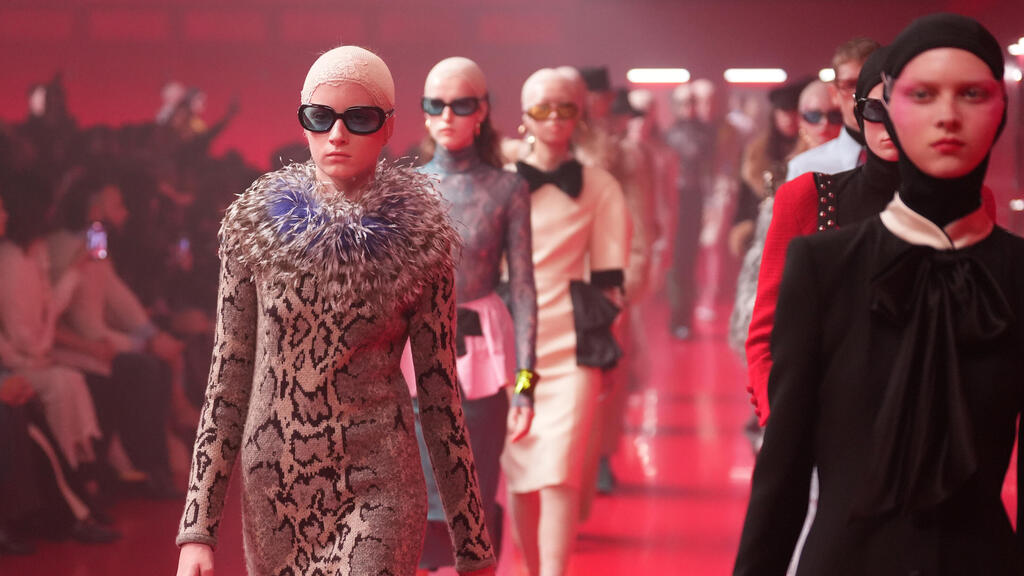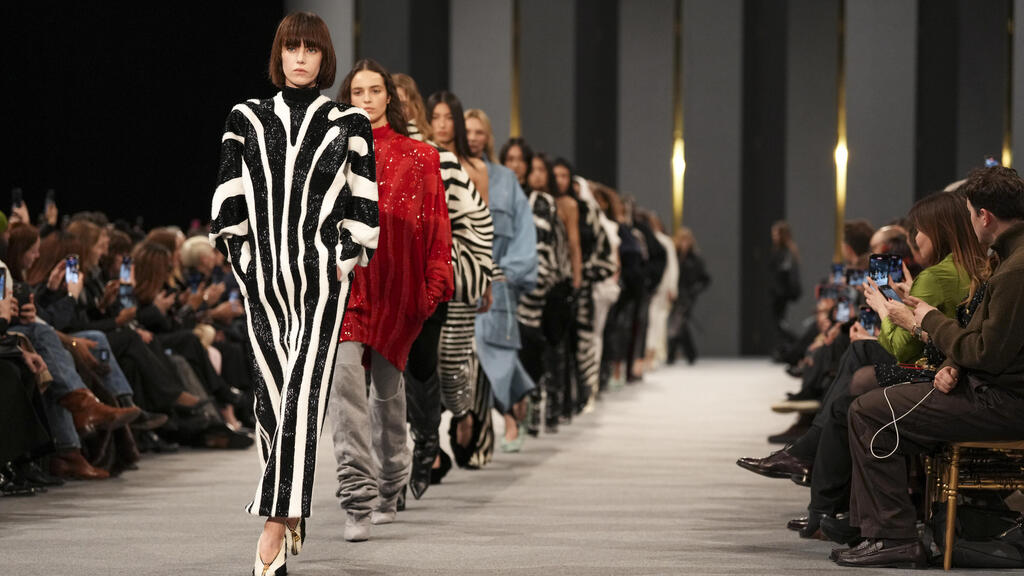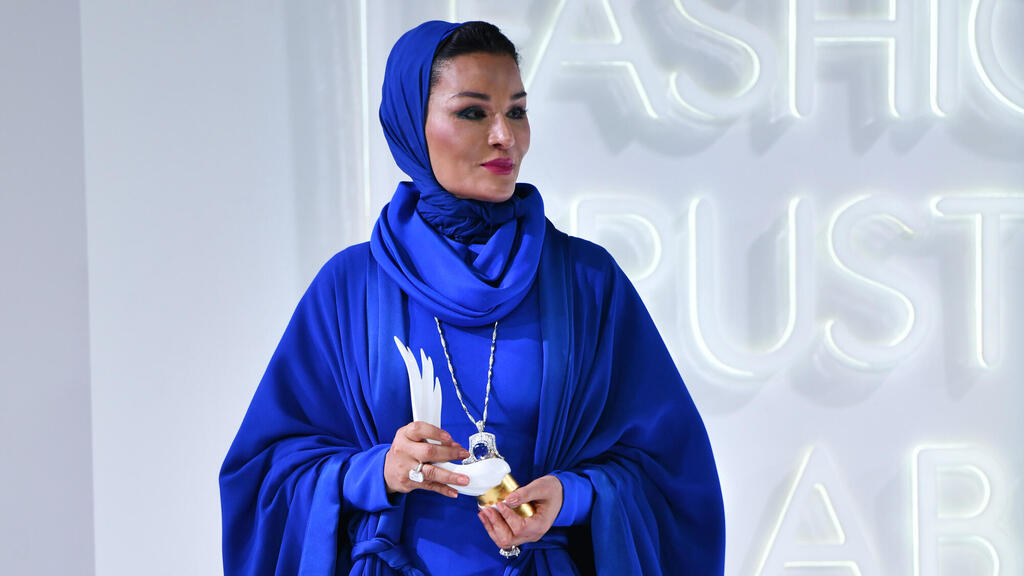After a high-profile World Cup, allegations of cash-stuffed suitcases sent to Hamas, and the involvement of Prime Minister Benjamin Netanyahu’s aides in the “Qatargate” affair, Qatar is not only being portrayed as a “hostile state” but also as a global force in fashion.
Through its royal family-controlled sovereign investment firm, Mayhoola, Qatar has become one of the most influential players in the luxury fashion industry.
5 View gallery
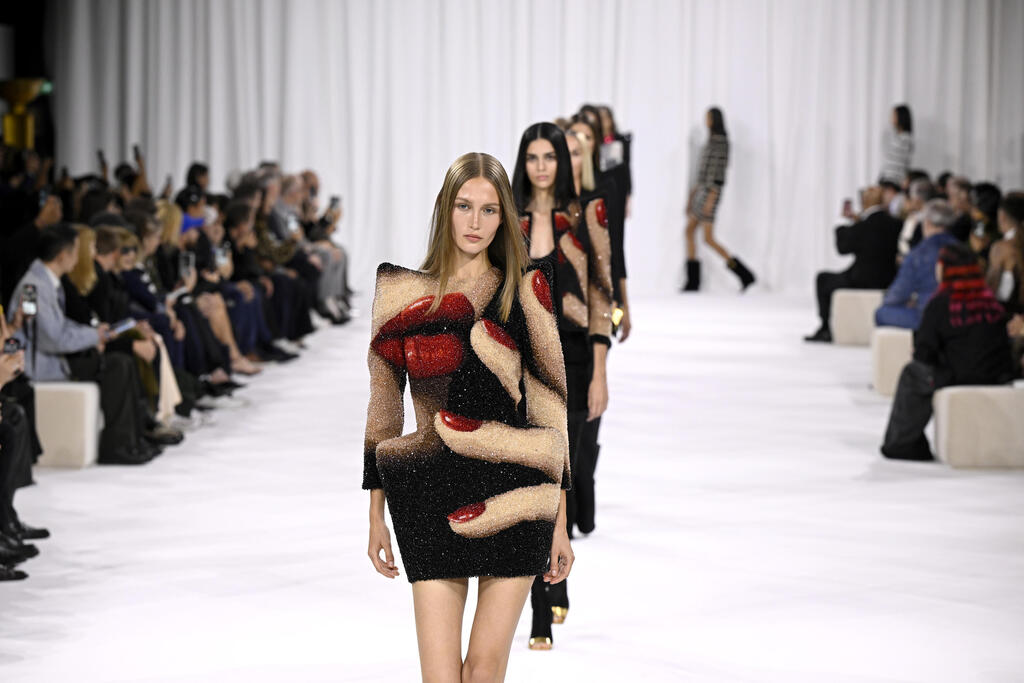

Balmain, Spring-Summer 2025 show. The fashion house has been owned by Qatar since 2016
(Photo: Kristy Sparow/Getty Images)
In 2011, the Gulf state began a high-end shopping spree, driven by Sheikha Moza bint Nasser, the powerful mother of Qatar’s current emir. A year later, Qatar purchased Italian fashion house Valentino for €700 million, followed by French brand Balmain for €460 million in 2016.
Both brands are sold in Israel. That same year, Qatar finalized its acquisition of Italian menswear brand Pal Zileri, after previously buying a 65% stake in 2014. While the full value of the deal was never disclosed, industry estimates put it in the hundreds of millions of euros.
Mayhoola previously owned shares in British designer Anya Hindmarch’s handbag line and in Tiffany & Co., now fully owned by LVMH since 2021. It also owns two iconic European department stores: London’s Harrods, acquired in 2011 for £1.5 billion and Paris’s Printemps, which was purchased in 2013 through Qatari-backed Divine Investments SA (DiSA), based in Luxembourg. In 2022, Printemps opened a new branch in Doha.
Qatar is one of the only countries in the world that directly owns both luxury brands and department stores — a combination that gives it substantial cultural, economic and political influence.
But what’s behind the estimated $4 billion shopping spree? “Sheikha Moza is passionate about fashion,” said a former associate of the royal family in a 2018 Business of Fashion interview. “She’s a powerful figure who’s followed around the world.”
Purchasing Western fashion brands helps Qatar project an image of modernity and openness. During the COVID-19 pandemic, Valentino published a glowing post thanking Qataris, quoting a Mayhoola spokesperson after the firm donated €1 million to Milan’s Sacco Hospital.
“We feel deeply close to the Italian people and are constantly monitoring the evolution of the pandemic in the country. We are pained to see what’s happening in Milan and sincerely hope this decisive action will support the hospital’s doctors and teams.”
Get the Ynetnews app on your smartphone: Google Play: https://bit.ly/4eJ37pE | Apple App Store: https://bit.ly/3ZL7iNv
But fashion is not the only motivation. The face of Qatar’s fashion ambitions is Sheikha Moza, 65, the second of three wives of former Emir Hamad bin Khalifa Al Thani. She’s a regular fixture on global best-dressed lists and has led the non-profit Fashion Trust Arabia since 2018, aiming to spotlight designers from the Arab world.
One past winner was Israeli designer Artsi Ifrach, who lives and works in Morocco and publicly criticized the IDF’s actions in Gaza during the war.
Her fashion journey began in 2011 with the ambition of creating a luxury brand that could rival Gucci, Prada, Dior and Louis Vuitton. Backed by $25 million in funding from a Qatari investment fund, she recruited Gregory Couillard — a luxury executive formerly with LVMH — to head the newly founded Qatar Luxury Group.
The firm’s first acquisition was French leather goods company Le Tanneur, intended to provide the technical foundation for Qatar’s debut fashion brand: Qela.
Launched in 2012, Qela offered custom-made clothing, footwear, jewelry and leather goods. A store opened in Doha in 2013 and a massive 6,200-square-meter (66,736-square-foot) location was planned for New York the following year.
5 View gallery
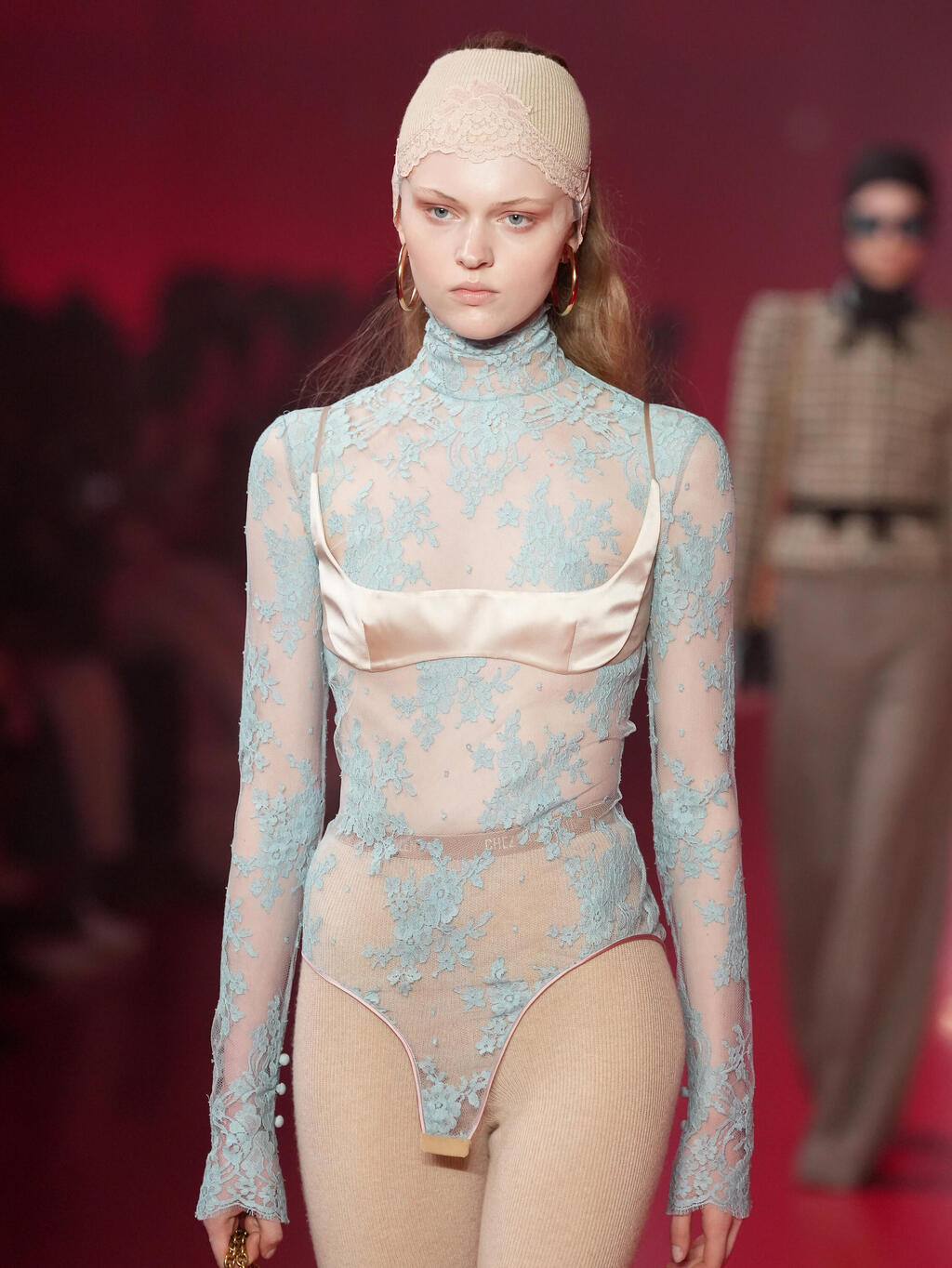

Qatari ownership is not reflected on the runway. Valentino show
(Photo: Francois Durand/Getty Images)
But by 2015, it was clear the brand flopped. The New York flagship remained empty, Couillard exited the company in 2014 and in 2017, Qatar sold its 85.6% stake to French venture capital firm Tolomei — marking the birth of Mayhoola.
The fashion ventures are also tied to geopolitical shifts. Since 2013, Qatar has been led by Sheikha Moza’s son, Emir Tamim bin Hamad Al Thani, 45, considered more conservative than his parents.
Like his father, he’s married to three women and has 13 children — seven sons and six daughters. The juxtaposition of liberal, gender-fluid brands like Valentino and Balmain with a country accused of human rights abuses — including during the 2022 World Cup — has drawn criticism.
The involvement of a government-controlled fund like Mayhoola in fashion raises concerns about foreign political influence over the industry’s values. Critics argue these investments may serve strategic or political goals, not purely business ones.
Still, there’s no evidence that the Qatari regime interfered with the creative decisions of designers like Valentino’s Alessandro Michele or Balmain’s Olivier Rousteing. Both are openly gay and frequently push the envelope on gender norms and revealing fashion.
Beauty queens protest Qatari investments
Qatar’s growing economic footprint in Europe has triggered criticism over alleged tax breaks, money laundering, terror financing and human rights violations.
In December 2023, two former U.S. beauty pageant contestants — Miss Tennessee 2020 Justice Enlow and Miss Mississippi 2015 Hannah Roberts — staged protests outside Valentino and Balmain stores in the U.S., demanding the release of Israeli hostages held in Gaza.
In a video posted to social media, the women appeared in chains, their faces streaked with fake blood, portraying themselves as captives of Sheikha Moza. They accused Qatar of supporting Hamas and doing little to help free the hostages, pointing out that Hamas’s senior leadership has been based in Doha since 2012.


